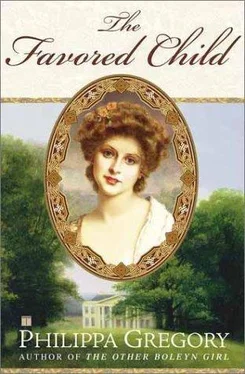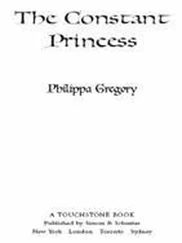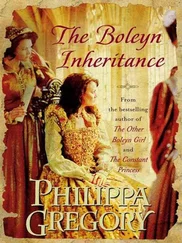I looked out of the dining-room window, past Richard’s head. The trees in the orchard were heavy with fruit, the blackbirds glutted on the windfalls. Through the open window I could sniff the cider-smell of rotting fruit. The branches were bowed to the ground with the crop. The apple trees I had planted were yielding too; Ralph had gangs out every day, picking and packing them for the Chichester fruit market. The land was rich. The Laceys were rich. Acre was dirt poor.
‘Where would they hide it, Julia?’ Richard demanded. ‘You know the estate as well as anyone. If you wanted to hide a couple of wagonloads of wheat where would you put it?’
‘I don’t know,’ I said carelessly. In truth I felt careless. I sipped the coffee and gazed out of the window at that green shoulder of the downs above the orchard. The beech coppice was changing colour already; the green was going and the strong brassy colour was shining through. The cedar tree in the garden was dark purple and the sky was very blue above it. I wondered if all wives have this longing to be elsewhere, a longing which is not even as clear as a wish for freedom or a dislike of one’s husband. It is just a vague, wordless sense that there should be something more, something more than being inside a window looking outwards for ever.
‘Are you listening to me, Julia?’ Richard was sharp. I dragged my eyes from the window and looked at him.
Of course,’ I said. ‘I do not know where I would hide a couple of wagonloads of corn on Wideacre. I do not know that anyone has done so.’
‘Would you be told if such a theft had taken place?’ Richard asked. ‘And if you knew,’ he continued sweetly, ‘would you keep it from me? Would you side with your precious Acre against me? I hope you would not, Julia. But I cannot be entirely sure.’
‘I would not, Richard,’ I said. I met his eyes without flinching. We had been living in the same house alone for some weeks and I had learned to lie to him. I might not always convince him, but he was often prepared to close his eyes to his uncertainty. Unusually for Richard, he was ready to let things go between us, and I still did not know why that should be.
‘Are you sure that Megson has said nothing to you?’ he demanded suddenly, as fast as a swooping falcon to my lie.
I shook my head, and half consciously put my hand on my swelling belly.
Richard’s face changed at once. ‘It does not matter! It does not matter!’ he said swiftly. ‘Don’t think about it, Julia I shall resolve the problem. Do not you trouble yourself with it. The Chichester accoucheur, Mr Saintly, said that of all things you must avoid worry. Don’t think about it any more.’
‘Don’t fuss, Richard,’ I said. He had risen from his place and come around the table to me. He was looking down at me and his face was filled with concern, but also with some eager hunger that I could not explain.
‘Are you thinking of me or the baby?’ I asked shrewdly.
‘Of you, of course,’ he said, but his eyes were on my swollen belly. ‘And the baby too, naturally. My son,’ he said, and his voice was full of longing. ‘My son, the next Lacey, the heir to Wideacre.’
‘What about the wheat, then?’ I asked, interrupting Richard’s meditation on the baby he was certain was a son. ‘Even if they have stolen a couple of wagons and hidden it, Richard, that is no more than they were promised by Uncle John and me. It would be difficult to find, and it would cause much bad feeling in Acre if you took it to market now. Surely the best thing to do is to leave things as they are. Acre will need a supply of winter corn, you know. And the price is going up all the time.’
Richard nodded absently. He reached out a gentle hand and touched my rounded belly. ‘Yes, yes,’ he said softly. ‘Don’t you trouble yourself with it, Julia. You just stay quiet and at peace, and concentrate on breeding a strong baby for the Wideacre cradle.’
‘I can’t be at peace if I think you are in conflict with Acre,’ I said. ‘I know the village seems quiet now, but remember Ralph Megson himself telling us about bread riots and corn riots. It need not always be violent and dangerous, Richard, but the poor believe they have a right to fair-priced wheat, sold and grown locally. I should hate Acre to try to take the law into its own hands.’
Richard nodded at that. ‘Yes,’ he said, ‘and I know that he is still a bread rioter at heart.’
‘Maybe,’ I said, ‘but he would never go against the owners of the land unless he thought they were behaving wrongly. If he has taken some corn, it is to ensure that the contract John and I made with Acre is honoured by you.’
Richard’s face was dark. ‘Well, don’t think of it, Julia,’ he said. ‘I don’t want you worrying about it when you should be resting and making the baby strong.’
‘But I do worry about it,’ I said, and I thought myself very clever to use Richard’s passionate concern for our unborn child against his hardness of heart. ‘There is only one way I can stop worrying, Richard: if you stop giving me cause. Every time there is trouble in the village, I hear of it, and of course it distresses me. If you truly want to save me anxiety, you should take Mr Megson’s advice. I don’t think Uncle John ever went against him, and it was Mr Megson who got Acre back to work.’
Richard looked hard at me, and his eyes gleamed, but I thought I had a way to rule him and to help Acre. I was not cautioned.
‘You admire Megson very much, do you not?’ he asked.
‘Yes,’ I said. ‘Indeed I do. If you knew him better, Richard, if you had seen him this spring and summer, you would admire him too. He has done wonders with the estate. Uncle John always said that nothing could have happened without him. And the people of Acre love him and trust him, far more than they would ever love and trust one of us. I do wish you could learn to work with him, even if you cannot like him.’
Richard showed his white even teeth. ‘I like him well enough,’ he said. ‘And I am coming to understand him more and more. I shall ask him directly about the missing corn, Julia. And I shall act on what he says.’ The hard brightness left his face and he smoothed my belly again with a proprietory hand. ‘So do not upset yourself and upset my son,’ he said earnestly. ‘Promise me you will rest while I am out this afternoon.’
I did not much like being loved only as the bearer of the heir to Wideacre. And I did not like how Richard was so set on a son. There was some hint of something old and dangerous in the way he so longed for another heir for this land to which the Laceys had clung for so many years.
I hoped very much that the child would be a girl, and that she would be free of the land. I would have her love it as I loved it, as the sweetest best country that anyone could work, not as Richard loved it, with this dark passion for ownership.
I thought I had won my way and won Acre its winter wheat, and so I smiled at Richard and promised I would rest. I would rest quiet while he went out. I kept my promise and went to my bed, which is why I was asleep when the soldiers came for Ralph Megson.
28
Iheard of it from my maid, Jenny Hodgett, the gate-keeper’s daughter. She was walking out with Bobby Miles from the village. Bobby had been in the Bush tavern when the two soldiers had ridden down the street with the carriage behind them.
They had pulled up outside Ralph’s cottage in the pearly-grey twilight of the Wideacre evening, soft and quiet with the birds going to roost and the stars coming out. An officer with the county militia had got out of the coach and gone into Ralph’s cottage without knocking on the door.
Читать дальше
Конец ознакомительного отрывка
Купить книгу












